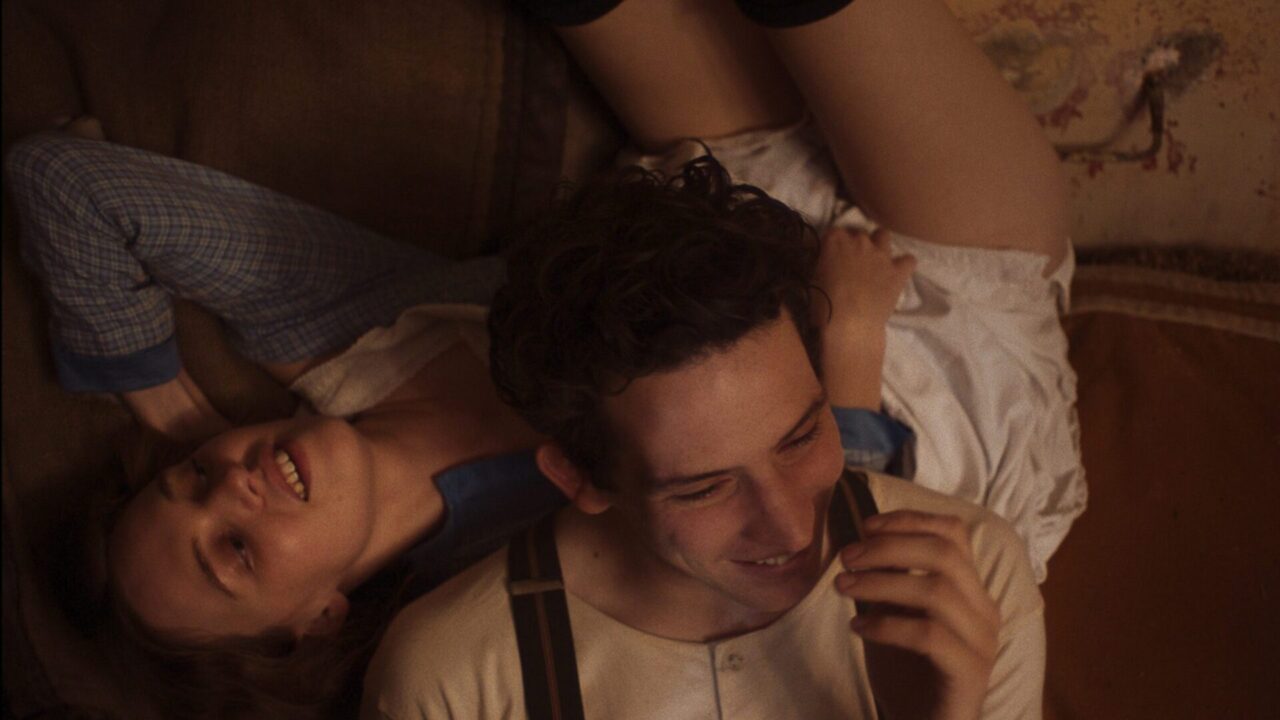This review originally ran on September 12, 2021, during TIFF
The words “I tried” aren’t necessarily the ones you want to hear as a filmmaker introduces their film for the first time. But those were director Eva Husson’s parting words as she recapped her experience making Mothering Sunday. Husson, whose previous film Bang Gang blew me away with its raw sexuality and uncompromising vision, teams up with writer Alice Birch (Normal People, Succession) to bring the story of a torrid love affair, adapted from the novel by Graham Swift, to the big screen. Try as they might, though, this one just didn’t land with a bang (despite there being a lot of “banging”).
Related: ‘Bang Gang’ Review: A Sun-Soaked Navigation Through Teenage Sexuality
Mothering Sunday takes place in England just after WWI, although it should be noted early on that this does not look or feel like a traditional period piece. Shot in a contemporary way with vibrant colors and mesmerizing use of lighting, Husson employs warm cinematic filters to give an old story new life.
The protagonist is Jane Fairchild (Odessa Young), an orphaned woman who works as a housemaid for a wealthy English couple, played by the incomparable Olivia Colman and Colin Firth. They treat Jane as their own, outwardly showing her affection (as much as one with a stiff upper lip can express) but it’s the secret love she shares with the young aristocrat Paul Sheringham (Josh O’Connor) that truly makes her feel alive.

Their relationship is approaching its expiration date as Paul is set to marry another woman soon. Basking in the last moments they have left together, which includes poetic musings and rolling around naked, Paul and Jane make the most of their limited time together until a jarring accident prematurely ends things for good.
At this point, playing British aristocrats comes second nature to this central cast (O’Connor being The Crown‘s Prince Charles, Colman the series’ Queen Elizabeth II as well as Queen Anne in The Favourite, and Firth playing King George VI in The King’s Speech). This is to say that these fine actors do not disappoint here. Colman and Firth take on minor roles, initially leading me to question why exactly they had agreed to co-star in a film without much output, but my question was answered after each one had their show-stopping scene, complete with a dramatic monologue.
The biggest surprise was the moodiness of the film as a whole, which the score and cinematography by Jamie Ramsay contributed to greatly. Composer Morgan Kibby (of the French electro-rock band M83) re-teams with Husson to create a score that is quite unexpected for the time period, using orchestral strings layered with synth undertones, which is easily my favorite part of the film.
Unnecessary secondary storylines that take place decades later muddle the main crisis at the core of Mothering Sunday, watering down the film as a whole. Mothering Sunday would have been stronger had the film explored more of young Jane’s conflicting feelings about grieving the loss of a man she was never supposed to have in the first place. Quietly mourning, feeling alone in your grief, abandoned by the one you love forever, these are powerful themes that resonated with me on a deep level. Had the focus remained on Jane at that time in her life, I can only imagine how much more affecting the story would have felt. Not all films need a happy ending, and Mothering Sunday is one of them.
Distributed by Sony Pictures Classics. Opening at the Landmark and AMC The Grove 14 on Friday, March 25th.
Morgan Rojas
Certified fresh. For disclosure purposes, Morgan currently runs PR at PRETTYBIRD and Ventureland.

